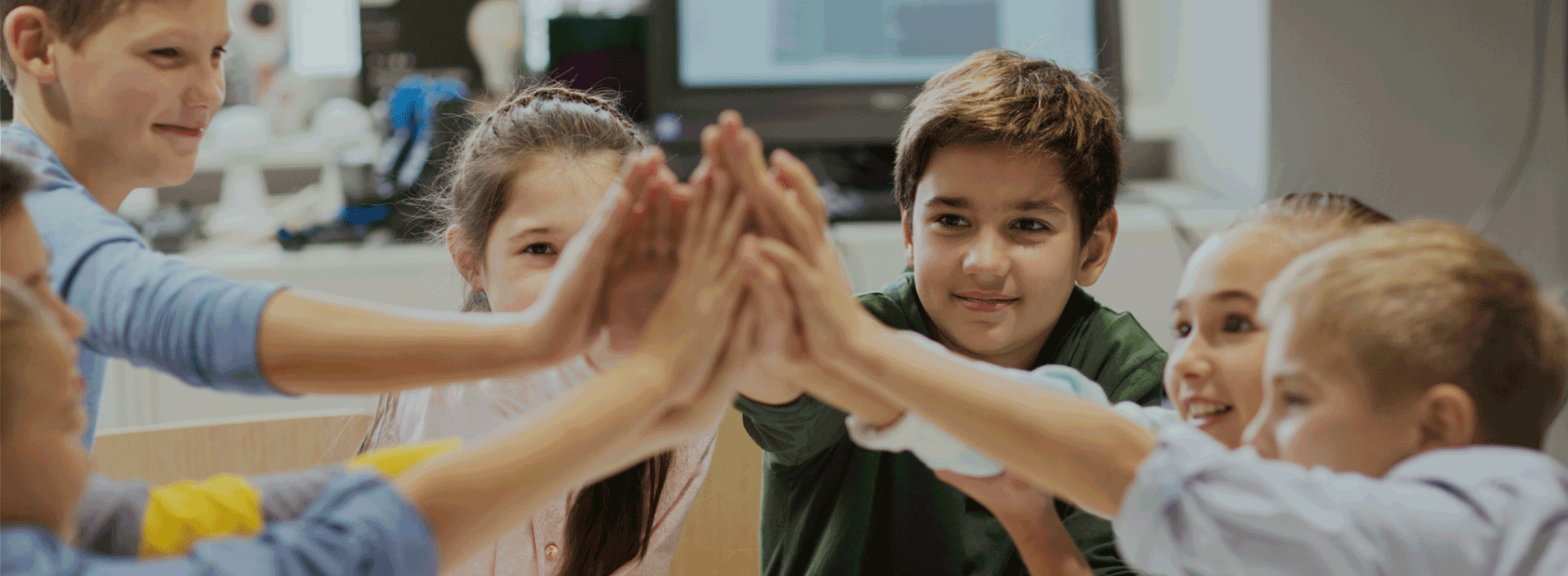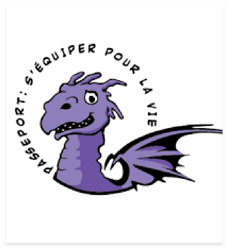Results & Impact
Evaluation of Zippy
Program Evaluation in Quebec
Professor Brian Mishara, director of CRISE, and Sarah Dufour, professor at the Department of Psychoeducation, University of Montreal, conducted research funded by the SSHRC to assess the effects of the program on Quebec children. This study made it possible to understand whether the expected results were observed in Quebec students and to verify, through a quasi-experimental design, changes that had only been documented qualitatively during previous evaluations (eg classroom environment).
Two-thirds of the teachers have perceived changes in the children they associate with the program, Zippy's friends. For example, a teacher noticed that "some children can better talk about what they feel. They are better at admitting feelings like jealousy and anger. They manage to verbalize and express themselves better than before. » P.17. In general, teachers noticed greater student participation in class, a change in children's verbal exchanges and better communication in conflict resolution (Dufour, S., 2005).
Impacts observed in children.
The program was equally effective for boys and girls. Keeping in mind that these children are functioning within the normal range, there was a modest effect on increasing the coping strategies targeted by the program.
Participation in Friends of Zippy was also associated with greater cooperation and autonomy and less internalized behaviours. (Dufour, Denoncourt, and Mishara, 2011)
Click here to see the results from the study conducted in Quebec.
Program Evaluations Worldwide
Type of study: Randomized controlled trial, validated scales.
Date of realization: 2016-17
By: Queen's University Belfast, funded by the Education Endowment Foundation
Number of children: 3904
Important benefits:
• Improved self-regulated learning (reported by teacher)
• Very positive evaluation of the process by the teachers
Read the report: https://educationendowmentfoundation.org.uk/projects-and-evaluation/projects/zippys-friends
Date of realization: 2015-16
By: Consortium of Prague Scholars
Number of children: 807
Important benefits:
• self-regulation
• cooperation with peers
• special advantages for children with SEND
Article published: Not yet available
Read the report:
https://www.partnershipforchildren.org.uk/uploads/Files/evaluation/Evaluation_Report_ZippiesFriends_Czech_Republic.pdf
Date of realization: 2012-14
By: The Trimbos Institute
Number of children: 1,177
Important benefits:
Improvement in:
• recognition of emotions
• adaptive coping skills
•motivation
Reduction of:
• hyperactivity
•aggressive behaviour
No significant findings in teacher reports
Article published: Not yet available
Read a summary of the report:
https://www.partnershipforchildren.org.uk/uploads/Files/evaluation/Trimbos%20Evaluation.pdf
Type of study: Randomized controlled trial, validated scales
Date of realization: 2007-08
By: Center for Mental Health for Children and Young People, Eastern and Southern Norway
Number of children: 1,483
Important benefits:
Improvements in:
•Coping skills
• Class climate
•Academic skills
Reduction of:
•Intimidation
• Impact of mental health issues
Articles published:
Solveig Holen, Trine Waaktaar, Arne Lervåg & Mette Ystgaard. The effectiveness of a universal school curriculum on coping and mental health: a randomized, controlled study by Friends of Zippy. Educational Psychology: epub ahead of print. DOI:10.1080/01443410.2012.686152When conducted: 2007-08
Date of realization: 2008-09
By: Center for Health Promotion Research, National University of Ireland at GalwayClarke, A.
Significant benefits
Improvements in:
• Emotional Literacy
•Coping skills
• Classroom relationships
Reduction of:
• Hyperactivity
Evaluation of Passport
With funding from the Public Health Agency of Canada, Passport:Skills for Life was developed by a multidisciplinary team at CRISE following consultations with some 40 educational, health and community organizations. From 2011 to 2014, the programme was assessed with 2,131 Francophone and Anglophone children and 131 teachers in Québec and Ontario (including disadvantaged and indigenous schools).
The Results
show the program has an impact.
Observed effects
about the children by their teachers after an auto-evaluation.
Children more frequently express feelings and can talk about difficult concerns
Better collaboration and mutual support in groups of children both in and out of the classroom.
More details on
Scientific Evaluation Results
Zippy's Friends
Program EvaluationPasseport: Skills for life
Program Evaluation
Schedule a session to explore the programs
"The easy to use turnkey aspect of the programme is exceptional and makes it easy to deliver."
"I learned that you don't have to be a star or someone else to be unique, you are unique just the way you are. I learned that we are all different. »



